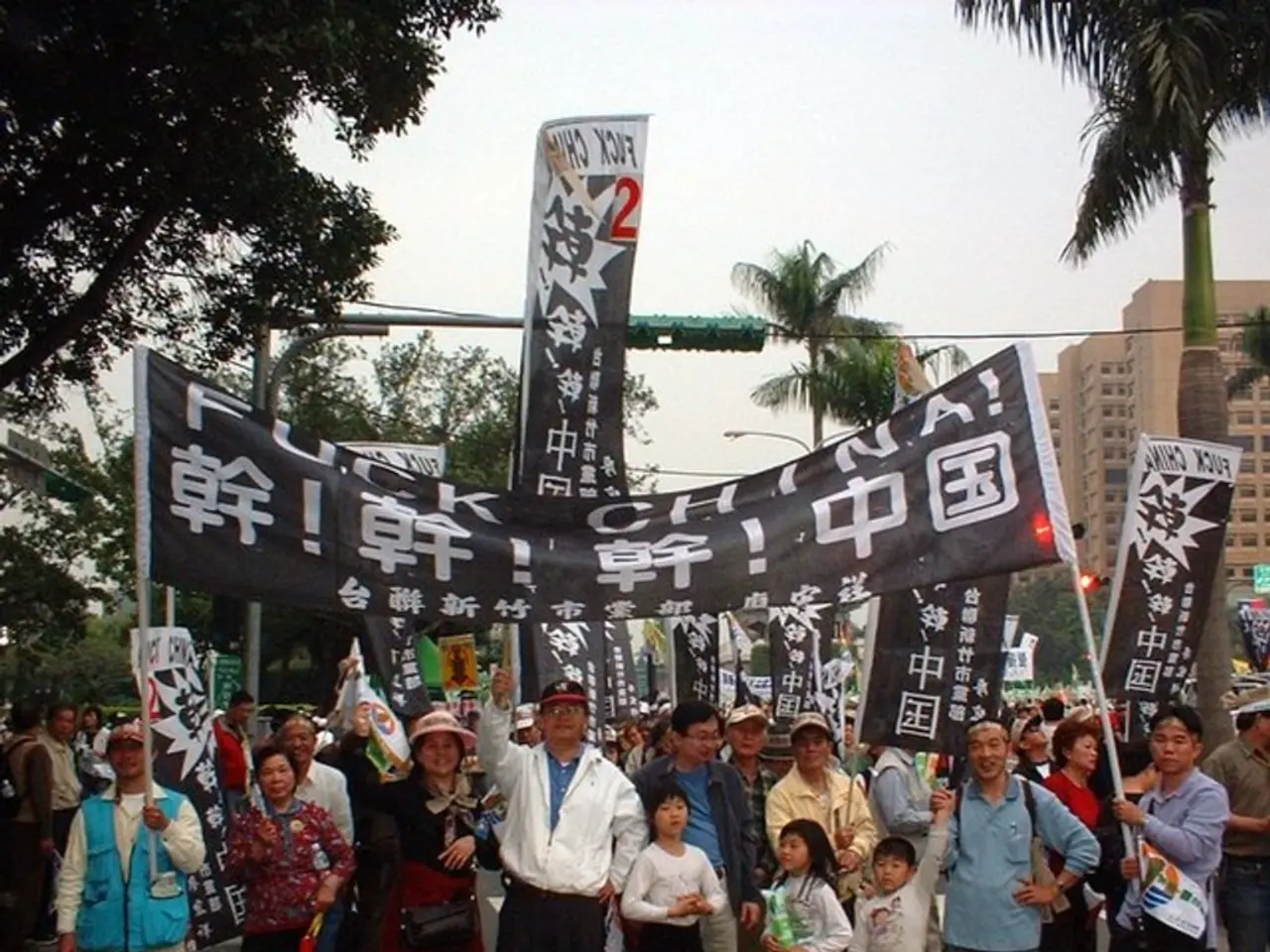Contest Participants Planning to Withdraw if Israel Competes in Eurovision
The Eurovision Song Contest, a popular annual music competition, has a rich history that often intertwines with global politics, particularly the Israel-Palestine conflict.
The first Israeli contestant, Ilanit, performed under strict security measures in 1973, a year after the Munich Olympic attacks. Fast forward to 2024, Eden Golan also performed under special protection, reflecting the ongoing impact of the conflict on the contest.
Israel made its debut at the Eurovision Song Contest in 1973, becoming a member of the European Broadcasting Union (EBU), which organizes the contest. This membership, granted due to Israel's broadcaster joining the EBU, allows participation regardless of geographic location if the broadcaster is an active EBU member.
Over the past five decades, the Israel-Palestine conflict has impacted the Eurovision Song Contest several times. Protests critical of Israel were observed during the competitions in Malmö in 2014 and Basel in 2025, with audience members whistling and booing Israeli performers.
The original title of Israel's 2024 entry, 'October Rain,' was considered too explicit a reference to the Hamas attack on Israel, triggering a debate about Israel's participation. Similarly, Madonna's performance in the 2019 Eurovision final, which involved dancers carrying Israeli and Palestinian flags, was not cleared with the EBU and was considered non-political by the contest organizers.
Notably, the EBU fined the Icelandic broadcaster RUV €5,000 for audience members holding Palestinian flags during the 2019 Eurovision final. Spain has officially declared its decision to boycott the 2026 Eurovision Song Contest if Israel participates.
Israel has won the Eurovision Song Contest four times, showcasing its talent and love for music amidst the ongoing political tensions. However, the decision on Israel's participation in the 2026 Eurovision Song Contest is expected in December, adding another chapter to the complex history of the Eurovision Song Contest and the Israel-Palestine conflict.
The Dutch public broadcaster, AVROTROS, stated it could no longer justify Israel's participation in the current situation due to ongoing human suffering in Gaza. This highlights the delicate balance between politics and entertainment that the Eurovision Song Contest often navigates.
The Eurovision Song Contest is called the 'Eurovision Song Contest' and not the 'European Song Contest' because of the inclusion of broadcasters and countries beyond the borders of Europe. Armenia, Azerbaijan, and Australia are also non-European participants in the contest. The 'Big Five' countries in the Eurovision Song Contest are Spain, Germany, the UK, France, and Italy, which contribute financially to the contest each year.
The contest has a history of addressing and being impacted by the Israel-Palestine conflict, yet it continues to bring together nations, fostering unity and celebrating diversity through music. As the world watches, the future participation of Israel in the Eurovision Song Contest remains a topic of discussion and debate.
Read also:
- United States tariffs pose a threat to India, necessitating the recruitment of adept negotiators or strategists, similar to those who had influenced Trump's decisions.
- Weekly happenings in the German Federal Parliament (Bundestag)
- Southwest region's most popular posts, accompanied by an inquiry:
- Discussion between Putin and Trump in Alaska could potentially overshadow Ukraine's concerns





